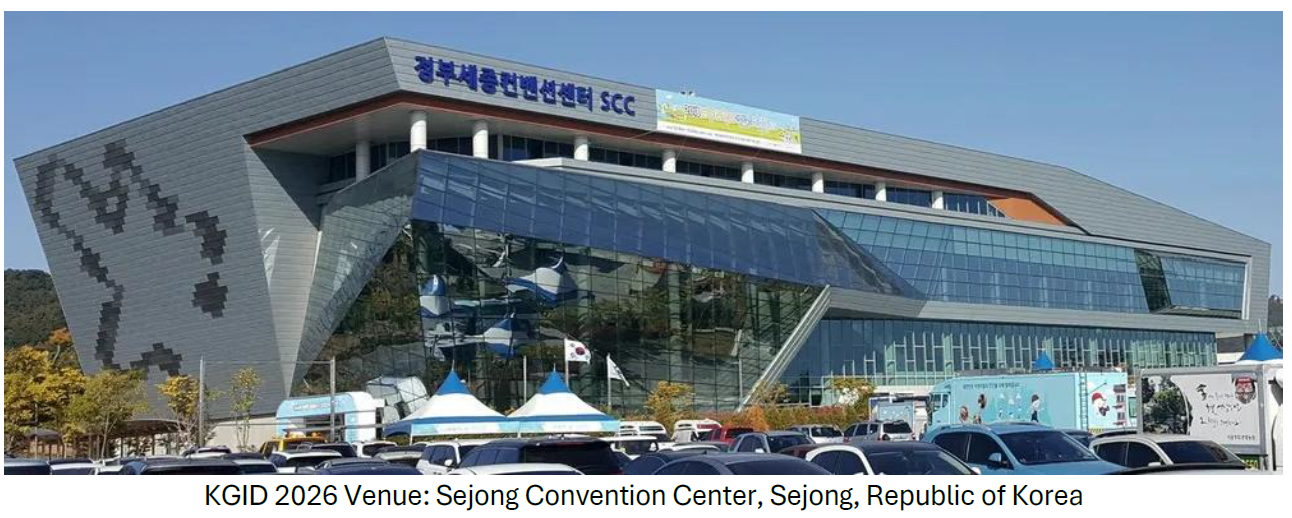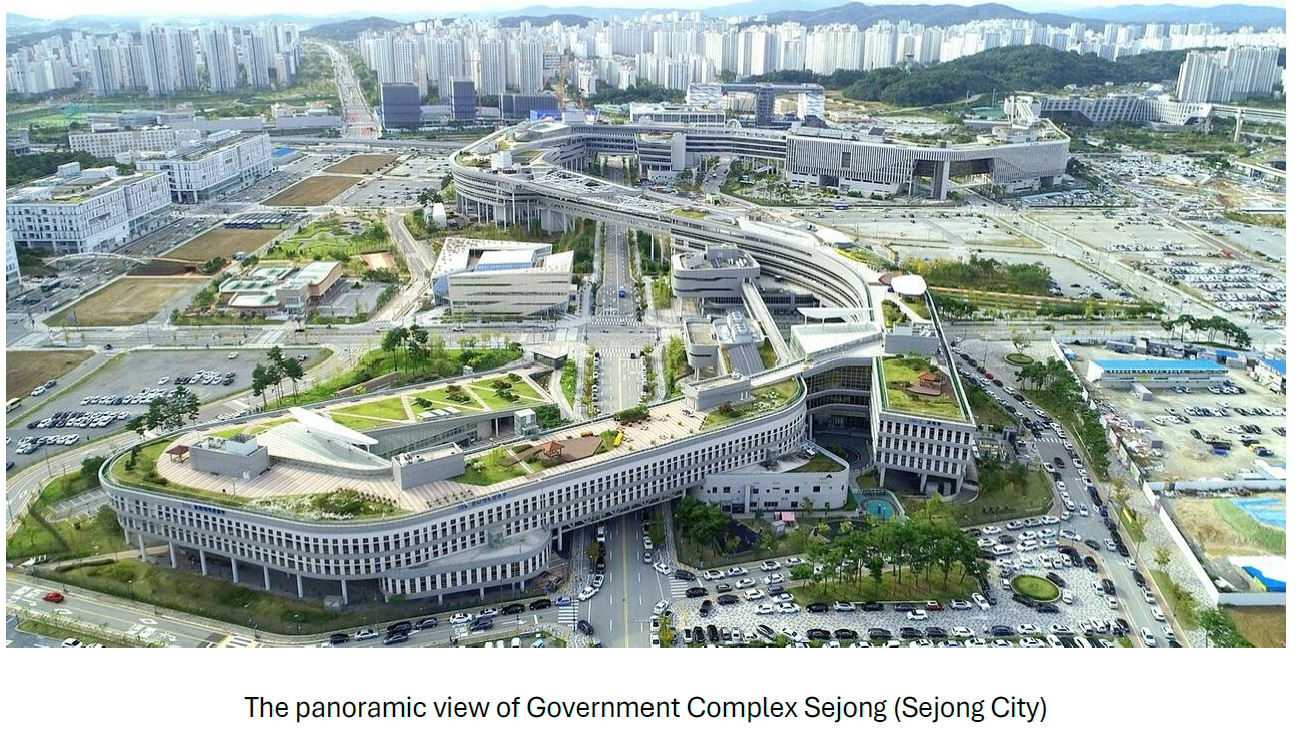(15th) Korea Green Innovation Days (KGID) 2026: Learning from Korea: Scaling Green Growth for Global Impact
The 15th edition of Korea Green Innovation Days (KGID 2026) will be held on May 6-8, 2026 in Sejong, Republic of Korea. It will convene global practitioners, policymakers, and partners to accelerate green growth solutions with clear potential to scale.
KGID is the annual flagship event of the Korea Green Growth Trust Fund (KGGTF). Building on the momentum of past editions, KGID 2026 will be organized under the theme: Learning from Korea: Scaling Green Growth for Global Impact.

Korea offers a particularly relevant set of lessons for today’s green growth agenda. It demonstrates how strong public institutions, innovation, industrial capability, and digital solutions can come together to deliver rapid development while advancing resilient pathways. Korea’s experience also shows what it takes to move from policy ambition to implementation by aligning financing, regulation, technology, and delivery systems, and mobilizing partnerships across government, academia, and the private sector.
KGID 2026 will elevate these practical lessons and focus on how they can be adapted and replicated in diverse country contexts. The emphasis is on implementation, replication, and partnership driven scale, highlighting how collaborative approaches across governments, development institutions, and the private sector can translate innovation into measurable development outcomes and generate global impacts for green growth.
About KGID
KGID convenes World Bank project teams, client countries, Korea partner institutions, and global green growth leaders to exchange knowledge, showcase results, and catalyze new partnerships across seven priority sectors: Agriculture and Food, Digital Transformation, Energy and Extractives, Environment, Transport, Urban, and Water.
Through concrete examples from ongoing KGGTF-supported activities, KGID highlights real-world applications of green growth, demonstrating how policy reform, technology, and institutional partnerships can unlock investment, strengthen capacity, increase productivity, and create jobs.
Since its inception, KGID has been hosted in major global and regional hubs, including Seoul, Washington DC, Dar es Salaam, Cairo, and Jeju, serving as a trusted platform for dialogue between operational teams and solution providers. In 2026, KGID will be hosted in Sejong, Korea’s administrative city, offering unparalleled access to government institutions and policy leadership.
Key Participants
-World Bank project teams and client countries from seven green growth sectors
-Korean ministries, government-affiliated agencies, ODA institutions, and research bodies
-Global green growth organizations, international institutions, academia, private-sector innovators, and emerging leaders
Key Objectives
-Showcase scalable green growth solutions that drive innovation, productivity, and employment across sectors and regions
-Strengthen partnerships among World Bank teams, client countries, Korean institutions, and global experts to maximize development impact
-Accelerate implementation and replication, linking knowledge exchange directly to operations, investments, and policy dialogue
Why Sejong
Sejong City, established in 2012 as Korea’s planned administrative city, is the policy hub of the Republic of Korea, home to 23 central government ministries and 22 affiliated agencies, including the Ministry of Economy and Finance, the Ministry of Land, Infrastructure and Transport, the Ministry of Agriculture, Food and Rural Affairs, and the Ministry of Climate, Energy and Environment, as well as 26 national policy research institutes and public institutions such as the Korea Development Institute (KDI).

Developed as part of Korea’s national decentralization strategy, Sejong represents a planned, forward-looking urban model, integrating sustainability, smart city solutions, green infrastructure, and innovation-driven growth. Sejong offers a uniquely concentrated governance ecosystem that supports KGID 2026’s theme and purpose by enabling:
-Direct engagement with policymakers and implementing agencies
-Policy-focused knowledge exchange and peer learning
-Exploration of institutional partnerships in a highly concentrated decision-making setting.
Hosting KGID in Sejong, Korea’s administrative city and a fast-growing planned city located about 1–1.5 hours from Seoul reinforces the event’s emphasis on policy-to-practice linkages and partnership-driven scale for global impact.
Program Overview
Dates: May 6-8, 2026
Venue: Sejong Convention Center, Sejong, South Korea
Expected participants: approximately 300 participants
Program (Tentative):

-Plenary Sessions: High-level discussions on green growth impacts, challenges, and opportunities, featuring World Bank sector leadership and global experts
-Parallel Breakout Sessions: Sector- and theme-focused exchanges highlighting case studies, lessons learned, and innovative approaches Bilateral Meetings Curated, pre-scheduled meetings to explore partnerships, collaboration opportunities, and potential investments
-Networking & Partner Spotlights: Dedicated spaces for Korean and global partners to showcase expertise, tools, and solutions
-Site Visits: Thematic visits showcasing Korea’s green growth innovations and implementation experience

KGID 2026 is designed as a hands-on platform for learning, partnership building, and operational impact. Program details will continue to be developed, and updates will be shared regularly.
We warmly welcome green growth practitioners from around the world to join KGID 2026 and contribute to inspiring collaboration, knowledge exchange, and scalable solutions. For inquiries, please contact: kggtf@worldbank.org.

